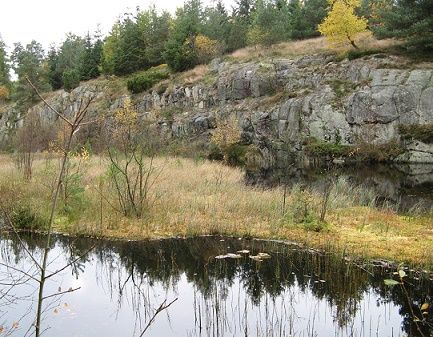Despite broad agreement amongst EU countries to introduce a major new law on nature restoration, the legislation has been put on hold.
At the last second, Hungary U-turned on its approval, making the ranks of the member states who will either vote against or abstain from voting on the law so large that the proposal is thereby postponed indefinitely.
Denmark’s Environment Minister Magnus Heunicke is worried: “I am concerned that the political agreement on the nature restoration regulation has not yet been finally adopted by the Council. It is a serious setback for the work for a better nature and biodiversity that the regulation is now being postponed. It is completely unheard of that we cannot rely on the agreements that have been negotiated,” he wrote in a statement to the media Altinget.
“The Nature Restoration Regulation is central to Europe’s work to curb the biodiversity crisis on our own continent. Denmark’s position is clear: We must have a long-term improvement of nature and biodiversity in the EU. We will work to make this happen,” says the minister.
“It’s a negotiation ploy”
Kira Marie Peter-Hansen, who is a member of the European Parliament for the Danish green left party SF, is also frustrated that several member states “are not standing by the agreement that was concluded with the European Parliament”.
“The Nature Restoration Act is an essential part of the EU’s Green Deal and absolutely crucial for us to achieve the green transition. But the law has become a symbol of the right-wing’s fight against the green transition. It is extremely unfortunate and short-sighted because no one wins in a climate crisis,” she says.
Venstre’s EU politician Morten Løkkegaard is also concerned, but calls for calm: “When you have ended up in a situation where you are dependent on Viktor Orbán, you know what that will mean,” he says.
“I think it’s a negotiation ploy, as usual. The law will probably be passed, but we just have to go through one more round,” he continues, and points out that nature restoration is a “fixed task” for the EU which needs to be addressed as we are “in the twelfth hour”.
“There is nothing perfect in this world, and neither is this Nature Restoration Act, but it is better than nothing,” Løkkegaard adds.
“One word: disaster”
The goal of the Nature Restoration Act is that member states undertake to gradually restore natural areas that have deteriorated. Over 80 percent of European natural areas are assessed to be in ‘poor condition’.
The environmental protection organisation Danmarks Naturfredningsforening calls it “decidedly incomprehensible” that no majority for the law could be achieved.
“The consequences in a Danish context can be described in one word: disaster,” says senior advisor at Denmark’s Nature Conservation Association, Bo Håkansson.
He describes contemporary efforts to preserve protected natural areas in Denmark as “very unambitious”, and criticizes EU politicians for being influenced by the agricultural demonstrations that have taken place in several European cities – including in Brussels.
“It is not a professional approach to change course in the final sprint. It is populist politics at its worst,” says Håkansson.
On 25 March, Brussels’ minister of the environment Alain Maron assured that the Belgian EU presidency will work hard to get the law voted through: “This is certainly not the end of this story,” he said at a press conference.
About the Nature Restoration Act
In the summer of 2022, the EU Commission put forward a proposal for a regulation on nature restoration. At the time, the Commission said that Europe’s nature is in “alarming decline”.
A year later, a qualified majority of EU member states agreed to vote in favour of the regulation.
However, many countries requested changes to the original proposal and were therefore criticised for diluting the law.
In February 2024, the law was voted through the European Parliament with 329 in favour, 275 against, and 24 abstentions.
The regulation, if it is voted through, will mean that EU countries must work to restore the natural areas assessed to be in ‘poor condition’. 30 percent must be restored by 2030, 60 percent by 2040 and 90 percent by 2050.
All that remained was for the member states to again nod yes to the law. This requires, among other things, that the proposal be supported by member states that represent at least 65 percent of the EU’s population. With Hungary’s U-turn, the qualified majority is gone.
Sweden, Poland, Finland, the Netherlands, Belgium, Austria and Italy do not intend to vote in favour either.














